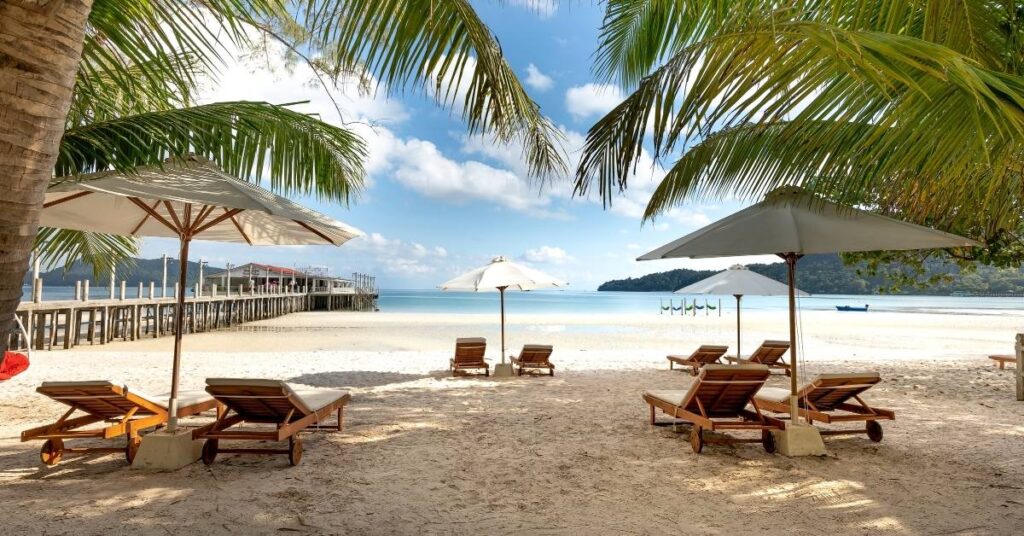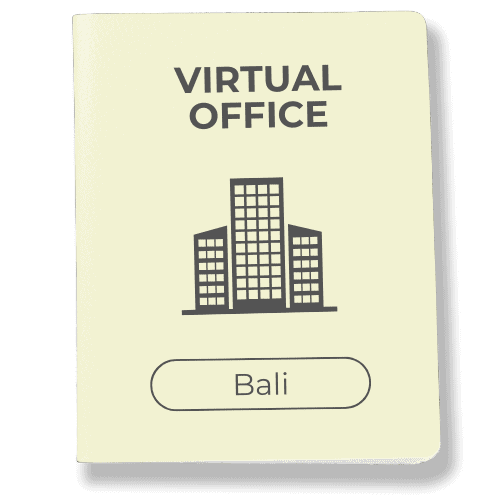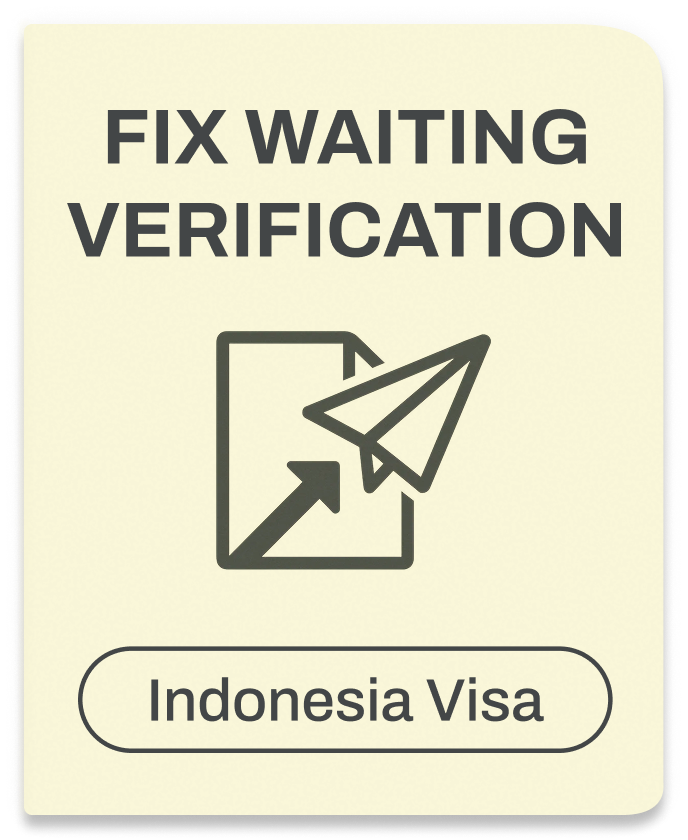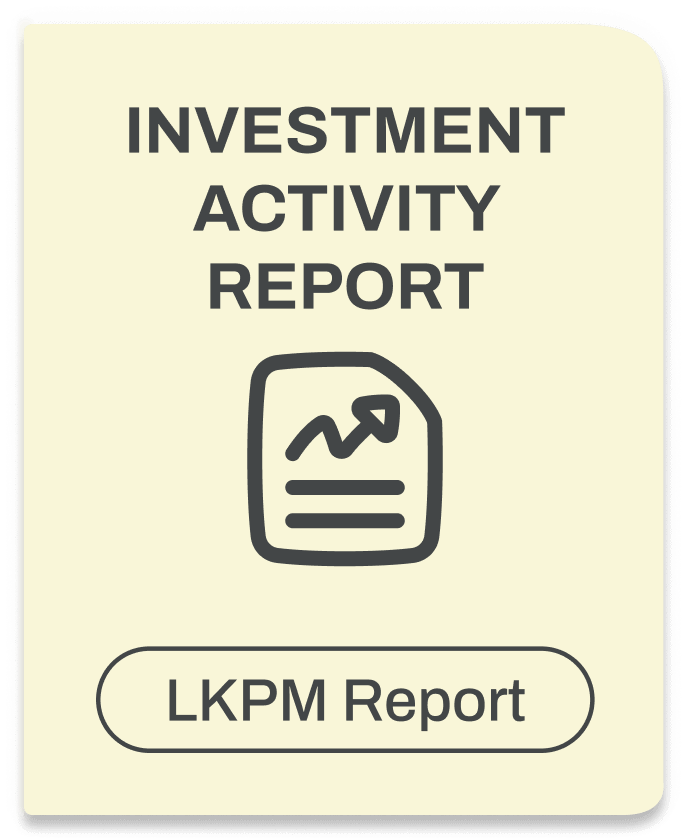Bali Is It Safe in 2025? Here’s the Honest Answer

The short answer? Yes, Bali is generally safe for foreign tourists in 2025. Most visitors have amazing, trouble-free trips without any major problems. The biggest practical risks you’ll actually face aren’t dramatic; they’re things like getting into a scooter accident, swimming in rough waters without proper safety equipment nearby, or having your phone swiped at crowded places.
Violent crime against foreign visitors is rare. The island welcomes millions of international travelers every year, and the overwhelming majority return home safely with nothing worse than a sunburn and incredible memories.
Safety Scorecard:
- Violent crime: Low
- Petty crime: Moderate (in busy tourist areas)
- Road safety: High (traffic accidents are the #1 injury cause)
- Water safety: Moderate to High (depends on location and season)
- Natural disasters: Moderate (earthquakes, active volcanoes, seasonal flooding)
- Health risks: Moderate (dengue, rabies exposure, food/waterborne illness)
What this means for you:
- Keep valuables locked in hotel rooms and use cross-body bags in crowded places. Petty theft happens, but it isn’t violent
- Get an international driving permit or rent a car with a driver instead of riding a scooter unless you’re experienced
- Only swim at beaches with lifeguards and proper safety equipment; always wear lifejackets on boat tours
- Download the Indonesia Health Alert app and pay your tourist levy before arrival
- Pack mosquito repellent, drink bottled water, and seek medical advice if you develop symptoms
What’s New in 2025 (Read this first)
If you’re planning on visiting Bali right now, there are five major updates you need to know about before you book your flight to Ngurah Rai International Airport.
Indonesia arrivals declaration is now mandatory. Starting September 1, 2025, every foreign national arriving in Indonesia must fill out the All Indonesia form online before arrival. This requirement expanded nationwide on October 1, 2025. Fill it out within 48 hours before your flight lands, and Indonesian authorities will check for confirmation at the international airport. It’s quick (about 5 minutes), but skipping it means delays at customs. For complete details on all entry requirements, check our comprehensive Bali entry requirements guide.
The Bali tourist levy is real and enforced. Every foreign visitor now pays IDR 150,000 (about $10 USD) per person, per visit. The Bali government requires you to pay it online through the LoveBali website or their mobile app before you arrive, though you can also pay at certain checkpoints if you forget. Print or screenshot your receipt, some hotels ask to see it, and local authorities conduct spot checks at popular tourist destinations. The money funds environmental and cultural preservation, so it’s going toward keeping the island beautiful.
Seasonal flooding is disrupting travel more often. Bali’s wet season (roughly November through March) has brought heavier rains than usual, and flooding can block roads between popular areas like Ubud and the coast. The Australian government specifically noted flooding and landslide risks in their recent travel advisories. Build flex days into your itinerary during the rainy season, monitor local media before day trips, and consider staying in one region for a few days instead of hopping around daily.
Earthquake and tsunami monitoring is more important than ever. Indonesia sits on the Ring of Fire, and while major natural disasters are still rare, recent seismic activity has prompted updated monitoring through BMKG (Indonesia’s meteorology agency). Download the INA-TEWS app (inatews.bmkg.go.id) for real-time alerts and early warning systems. Hotels are required to have evacuation maps posted, actually look at them when you check in. If you feel shaking, remember: DROP, COVER, and HOLD ON. If you’re near the coast and feel a strong quake, move to higher ground immediately, as tsunamis can arrive with little or no warning.
Maritime incidents near Nusa Penida mean you need to be picky about boat operators. Recent accidents involving fast boats to Nusa Penida and the Gili Islands have raised safety concerns among foreign nationals. Some operators cut corners on safety equipment, overload boats, or sail in rough conditions they shouldn’t. Only book with licensed operators (ask to see their permit), confirm there are enough lifejackets for everyone before you board, and exercise caution, don’t be afraid to cancel if the sea looks too rough or the boat looks sketchy.
Bali Safety at a Glance: What Governments Say
If you check your government’s travel advisories before an international trip (and you should), here’s what you’ll find about whether Bali is safe right now.
The U.S. State Department lists Indonesia at Level 2, which means “Exercise Increased Caution”, but that’s for the entire country, including areas tourists never visit. Canada tells its citizens to “exercise a high degree of caution” for Indonesia overall. The Canadian government specifically warns about petty crime in tourist areas like Bali and Lombok. The Australian government’s Smartraveller site mentions to watch for flooding and natural disasters but doesn’t tell people to avoid the safe destination entirely.
Here’s how to read these official warnings without freaking out: governments have to cover their legal bases for an entire massive country. Indonesia includes Jakarta’s urban crime issues in major cities, political tensions in Papua, and terrorism risks in certain regions, none of which really apply to Bali’s main tourist areas like Seminyak, Ubud, Nusa Dua, or Sanur. These warnings are written for business travelers going to unfamiliar cities and adventure travelers heading to remote areas, not for someone spending a week at a beach resort.
That said, don’t dismiss them entirely. Indonesian authorities continue to emphasize preparedness for natural hazards (earthquakes, active volcanoes, floods) and the importance of water safety. Use these advisories as a starting point for your research, not a reason to cancel your trip. Check the sections specific to terrorism, natural disasters, and health; those apply everywhere. The crime warnings are usually about big cities or a few places you won’t be visiting anyway.
The Risks You’ll Actually Manage (and exactly how)
Let’s talk about what might actually go wrong on your Bali vacation and how to prevent it. This isn’t about being paranoid; it’s about exercising common sense so you can relax and enjoy yourself at this generally safe destination.
Petty crime & scams
Pickpocketing and phone snatching happen in busy tourist areas, especially in predictable spots: packed beaches like Kuta or Double Six, crowded bars in Seminyak, busy markets, and sketchy money changers. Unsuspecting tourists often have their phones grabbed off tables while distracted, backpacks unzipped in crowds, or get shortchanged when exchanging cash. These thieves target distracted visitors, not locals who know the drill.
Do this instead: Use a cross-body bag that stays in front of you, not a backpack you can’t see. Leave your passport, extra credit cards, and most of your cash in your hotel safe (seriously, use it, that’s why it’s there).
When you need to exchange money, only use authorized money changers operated by local businesses with clear signage and licenses posted, or better yet, use ATMs at bank branches and pay with card whenever possible. If you do exchange cash, count it twice before leaving the window, and count it again away from the counter where nobody can see how much you have.
Drink spiking is a serious safety concern. Cases of drink spiking occur in Bali, and there have been reports of methanol poisoning from contaminated alcoholic beverages in some bars and restaurants. Never accept drinks from strangers, and never leave your drink unattended, even for a bathroom break.
If you’re drinking cocktails or local spirits, stick to reputable establishments and be wary of extremely cheap alcoholic drinks; if a cocktail costs less than a soda, there’s probably a reason. Symptoms of methanol poisoning include nausea, vomiting, abdominal pain, drowsiness, and vision problems. If you or a friend experience these after drinking, seek medical advice immediately.
Road & transport safety
Here’s the uncomfortable truth: traffic accidents are the leading cause of tourist injuries and deaths when visiting Bali. The roads are chaotic, drivers don’t always follow local laws, and the combination of inexperienced tourists on rented scooters plus monsoon rain, potholes, plus aggressive local drivers creates dangerous situations constantly.
If you’re thinking about renting a scooter, ask yourself honestly: Have you ridden one before? Do you have a valid motorcycle license and an international driving permit from home? Does your travel insurance cover scooter accidents (many don’t)? Can you handle driving on the left side of the road in heavy traffic with no lane discipline? If the answer to any of these is “no” or “maybe,” rent a car with a driver instead. It’s not that much more expensive (often $30-50/day), and it’s infinitely safer.
If you do rent a scooter despite this practical advice, get proper insurance (not just the basic scam coverage from rental shops), always wear a helmet (it’s a requirement under local laws), and dramatically increase your braking distance when roads are wet. Indonesian authorities have increased enforcement of traffic violations, including helmet laws and proper licensing, so you might actually get stopped and fined now, they’re serious about road safety.
Safer transport choices: Use reputable taxi companies like Blue Bird, or ride-hailing apps like Gojek and Grab for safer transportation options. If you’re traveling with kids, bring a portable car seat or arrange one through your villa/hotel in advance. Regular taxis won’t have them. Vet your driver through your hotel or a trusted tour company rather than hiring someone random on the street.
Water, surf & boat tours
Bali’s beaches range from calm and swimmable to deadly dangerous, sometimes on the same beach depending on the tide and season. Not all beaches have lifeguards or proper safety equipment. Many don’t have warning flags. Rip currents are common and can pull even strong swimmers out to sea in seconds.
Here’s your water safety checklist: Only swim at beaches with lifeguard towers and posted safety measures. If you see red flags or no flags at all, don’t go in the water, Instagram isn’t worth drowning for. If you get caught in a rip current, don’t panic and don’t swim against it. Swim parallel to shore until you’re out of the current, then swim back to beach. Better yet, float and signal for help.
Special call-out for Nusa Penida and Kelingking Beach: The conditions here change fast. What looks calm in the morning can become dangerous by afternoon. The hike down to Kelingking Beach is steep, exhausting, and genuinely risky, people have died from falls and heat exhaustion. The climb back up takes way longer than you think. Start early, bring lots of water, wear real hiking shoes, and be honest about your fitness level.
For boat tours to Nusa Penida, the Gili Islands, or snorkeling trips, insist on proper safety equipment including lifejackets before the boat leaves, not the cheap foam ones, but actual Coast Guard-approved vests.
Several maritime incidents near Nusa Penida have highlighted the importance of choosing licensed operators who follow safety protocols. Ask your operator about their safety briefing, check that the boat isn’t overloaded, and use common sense, if the sea looks rough or the boat looks sketchy, reschedule.
Natural disasters: earthquakes, tsunamis & active volcanoes
Indonesia experiences earthquakes regularly as part of the Southeast Asia seismic zone. Most are minor and you won’t even feel them. Occasionally, there are bigger ones, and the tsunami risk is real for coastal areas, often arriving with little or no warning.
What to do right now: Enable emergency alerts on your phone. Download the INA-TEWS app (inatews.bmkg.go.id) for tsunami warnings and early warning systems. When you check into your hotel, actually look at the evacuation map, note where the stairs are (don’t use elevators in earthquakes), and where the high ground or evacuation assembly point is. Monitor local media for updates on natural hazards.
If you feel an earthquake: DROP to your hands and knees, take COVER under a sturdy table or desk, and HOLD ON until the shaking stops. If you’re outside, move away from buildings, trees, and power lines. If you’re at the beach and feel a strong earthquake, move to higher ground immediately without waiting for a siren, that’s your tsunami warning, and you may have little or no warning before waves arrive.
BMKG provides real-time monitoring and alerts through their website and app. Hotels in coastal areas are required to have evacuation routes and regular drills. Pay attention to the signage showing tsunami evacuation routes, those blue signs with waves and arrows pointing uphill.
Mount Agung and Mount Batur are active volcanoes that are monitored 24/7 by Indonesian authorities. When activity increases, local authorities establish exclusion zones and close areas to visitors. Follow official warnings and don’t try to be a hero by hiking a closed trail, the death penalty in Indonesia doesn’t apply to volcano stupidity, but the volcano itself might enforce a permanent penalty.
Health risks & hygiene
Three main health concerns affect tourists in Bali: dengue fever, rabies exposure, and gastrointestinal illness (the famous “Bali Belly“).
Dengue prevention: Dengue is one of the significant health risks in Bali, transmitted by mosquitoes that bite during the day, especially during rainy season. Use insect repellent with DEET or picaridin constantly, wear long sleeves at dawn and dusk, and sleep under mosquito nets or in air-conditioned hotel rooms.
There’s no vaccine widely available yet, so prevention is your only defense. Symptoms include high fever, severe headache, pain behind the eyes, and body aches. If you develop these symptoms, seek medical advice immediately and get proper medical treatment.
Rabies awareness: Bali has rabies, and it’s transmitted through bites or scratches from infected stray dogs, monkeys, and bats. Don’t pet street dogs, no matter how cute. Don’t feed or touch the monkeys at Ubud Monkey Forest or Uluwatu Temple, they’re aggressive and will bite, especially if you have food or shiny objects.
If you’re bitten or scratched by any animal, wash the wound immediately with soap and water for 15 minutes, then seek medical assistance at the nearest health services facility for post-exposure rabies shots. Consider supporting local animal welfare organizations like Villa Kitty, which works to reduce rabies through spay/neuter programs.
Bali Belly basics: Most tourists get at least mild stomach issues from unfamiliar bacteria in food and water. Always drink bottled water (that includes ice cubes and brushing your teeth). Avoid raw vegetables that might have been washed in tap water. Street food can be safe if it’s cooked fresh in front of you and served hot, use your judgment about hygiene from local vendors.
Bring anti-diarrheal medication and oral rehydration salts. For serious cases with high fever, blood in stool, or symptoms of serious illness like severe dehydration, seek medical treatment at a clinic rather than trying to tough it out.
Know the difference between a clinic and a hospital: international clinics like BIMC or Kasih Ibu handle most tourist medical issues quickly and speak English, with direct insurance billing for medical assistance. Hospitals are for serious emergencies requiring comprehensive medical treatment. Keep your travel insurance card handy and understand what your coverage includes, including medical evacuation if needed.
Who You Are: Tailored Tips
Different travelers face different risks in Bali. Here’s specific safety advice based on who’s asking.
Solo female travelers
Bali remains generally safe for solo female travelers, with most women reporting positive experiences. That said, exercise common sense everywhere: don’t walk alone on deserted beaches late at night, avoid getting too drunk in unfamiliar places, and trust your instincts about people and situations. Personal safety should always be a priority.
Practical tips: Use the same trusted driver for multiple trips rather than hailing random taxis, your hotel can recommend someone reliable. Book accommodations with good reviews specifically mentioning solo female safety. Join group tours for activities rather than hiring private guides when heading to remote areas. Keep a digital copy of your passport and important contacts in the cloud. Share your location with a friend or family member back home.
Drink safety is especially important for personal safety. Never accept drinks from strangers, and never leave your drink unattended. Be cautious about drink spiking risks in busy bars and clubs. Stick to busier establishments with other tourists around rather than going to isolated spots.
Dress modestly when visiting temples or inland villages (covered shoulders and knees) to respect local customs, but beach attire is fine at beach areas. You’ll get some attention as a solo woman, most of it is harmless friendliness or vendors hoping for business, but persistent unwanted attention deserves a firm “no thank you” and walking away.
Families with kids
Bali can be amazing for families, but it requires more planning because safety infrastructure isn’t always up to Western standards, and you need to respect local culture while keeping kids safe.
Pool safety: Not all pools have proper fencing or adequate safety equipment. Drowning is a real risk for kids. If your villa or hotel pool isn’t fenced, consider bringing a portable pool alarm or keeping the door to the pool area locked when you’re not actively supervising.
Car seats: Bring a portable car seat or arrange one through your villa/hotel in advance. Regular taxis won’t have them. This is non-negotiable for young children and is part of taking appropriate precautions.
Mosquito protection for kids: Use child-safe repellent and dress kids in lightweight long sleeves and pants during dawn and dusk when dengue-carrying mosquitoes are most active. Consider accommodations with screens on windows and air conditioning in hotel rooms.
Know where your nearest clinic is: Keep the address and phone number in your phone. BIMC and Kasih Ibu hospitals have pediatric departments and English-speaking staff for medical assistance. Minor injuries and illnesses happen with kids, have a plan for getting quick medical treatment.
Food safety: Kids are more vulnerable to Bali Belly and other food and waterborne illness. Stick to bottled water for drinking and tooth brushing, avoid ice cream from street vendors, and bring pediatric oral rehydration solution just in case.
LGBTQ+ travelers
Bali is more tolerant than much of Indonesia, particularly in busy tourist areas where you’ll find LGBTQ+-friendly accommodations, bars, and beaches. Seminyak especially has a visible LGBTQ+ scene. However, Indonesia as a whole has conservative social norms under local laws and no legal protections for LGBTQ+ individuals.
Practical guidance: Public displays of affection (for any couple, gay or straight) aren’t common in Indonesian culture and might attract unwanted attention, especially outside tourist zones. In Seminyak, Canggu, and Ubud’s tourist areas, you’ll encounter much more acceptance. Read recent reviews of hotels and tour operators to gauge their openness. Respect local customs regarding public behavior to avoid issues with local authorities.
Indonesia’s laws technically criminalize same-sex relations in some provinces under Indonesian government regulations, though enforcement in Bali’s tourist areas is virtually non-existent. Exercise caution about being open about your relationship, depending on where you are on the island.
Seniors & mobility considerations
Bali’s infrastructure isn’t always mobility-friendly. Sidewalks are uneven or non-existent, temple sites have steep stairs, and flooding during the rainy season can limit mobility even more in central Bali and other regions.
Consider basing yourself in Sanur or Nusa Dua, which have flatter terrain, better sidewalks, and calmer beaches compared to hilly Ubud or chaotic Kuta. Many beaches have soft sand that’s difficult to navigate with mobility aids. Ask locals or your hotel about the most accessible beach access points.
Book ground-floor accommodations or verify that elevators actually work (power outages happen). Plan activities during the dry season (April-October) to avoid flooding and muddy paths. Hire a driver for day trips rather than trying to navigate transportation on your own; it’s inexpensive and eliminates huge amounts of stress and physical strain.
Bring any prescription medications in their original containers with copies of prescriptions. International clinics offer excellent health services, but specific medications might not be available, so bring extras. Seek medical advice from your doctor before traveling about any concerns.
Where to Base: Safer-feeling Areas (and why)
Where you stay in Bali significantly affects your personal safety and overall experience. Here’s the honest breakdown of popular areas and safety tips for each.
Nusa Dua is the safest bet for families and risk-averse travelers. It’s essentially a purpose-built resort zone with controlled access, private beaches, and minimal street traffic. The ocean here is generally calmer than Kuta’s wild surf. Security measures are strong. The downside? It’s expensive, isolated from “real Bali,” and you’ll need transportation for everything. Great for: families with young kids, first-time visitors, anyone prioritizing safety over adventure.
Sanur offers a middle ground: it’s calmer and more family-friendly than the party zones, with a nice beachfront promenade, gentler waters, and a more relaxed vibe. It’s popular with long-term visitors and expats, which means good international restaurants and reliable services from local businesses. The sea is protected by a reef, making it safer for swimming. Great for: seniors, families, people who want a quieter Bali experience.
Ubud and central Bali is the cultural heart of the island, set inland among rice terraces and jungle. It’s safe from a violent crime perspective, though the monkey forest requires caution (remember that rabies warning). Traffic can be chaotic getting in and out, especially during flooding season. The terrain is hilly and roads can be treacherous when wet. Great for: culture seekers, yoga enthusiasts, people who want to explore temples and rice terraces as a home base, those interested in local culture.
Seminyak and Canggu are where most younger tourists and digital nomads stay, trendy beach clubs, good restaurants, co-working spaces, and a lively scene. Safety-wise, they’re generally safe during the day, but late-night crowds in these popular tourist destinations mean more pickpocketing opportunities and drink spiking risks. Traffic is terrible. The ocean has strong currents. Great for: social travelers, surfers, people who want nightlife and don’t mind crowds.
Kuta is rowdy, crowded, and where most of Bali’s petty crime against tourists happens. The beaches are packed, the surf is dangerous for inexperienced swimmers, and late-night bar areas require extra vigilance. That said, it’s cheap and convenient to Ngurah Rai International Airport. Great for: hardcore surfers, extreme budget travelers, people who don’t mind chaos.
How to pick by priorities:
- Safety + calm = Nusa Dua or Sanur
- Culture + safety = Ubud (stay in the main area, not remote villas)
- Social scene + acceptable risk = Seminyak or Canggu
- Budget + convenience = Kuta (but stay alert and exercise caution)
- Diving/island hopping = Sanur (boats to Nusa Penida) or Padangbai
Local Laws, Culture & The 2025 Tourist Code
Bali is overwhelmingly tolerant of tourists, but there are local laws and customs, and in 2025, local authorities are actually enforcing them to protect the local culture.
Temple etiquette: Cover your shoulders and knees to respect local customs at sacred sites. Use a sarong and sash (temples rent them if you forget). Don’t enter during your period if you’re female (it’s a purity law in local culture). Don’t climb on sacred structures for photos. Many temples now require licensed guides, it’s not a scam, it’s an effort to preserve cultural context and control crowds according to regulations from the Bali government.
The March 2025 circular on tourist behavior clarified expectations: Indonesian authorities now enforce rules about disrespectful behavior at sacred sites, public nudity, and reckless driving. This came after several high-profile incidents of tourists behaving badly went viral on local media. The message is clear: respect local customs and local laws or face consequences, including fines or deportation.
Money exchange rules: Use only authorized money changers with clear signage and posted rates at established local businesses. Scams involving shortchanging or fake bills are common at unofficial changers. Legitimate operations are licensed and have ID numbers posted. For longer stays, consider opening an Indonesian bank account for better exchange rates and easier financial management.
Drug offences are taken extremely seriously. Indonesia has strict drug laws, and drug offences can result in lengthy prison sentences or even the death penalty for trafficking. Don’t use illegal drugs or carry them, even small amounts, for personal use. Indonesian authorities continue to aggressively prosecute drug cases, and being a foreign national won’t protect you.
General behavior to respect local culture: Don’t touch people’s heads (including kids, it’s considered sacred). Use your right hand for giving and receiving things. Don’t point with your index finger; use your thumb instead. Take your shoes off before entering homes and some businesses. These aren’t just safety tips, they’re about respecting local customs and make your trip better for everyone.
For complete official guidelines, check disparda.baliprov.go.id for the provincial tourism office’s current regulations and cultural guidance that will help you respect local traditions.
If Things Go Wrong: Numbers & Steps
Hope for a trouble-free trip, but plan for the worst. Save these emergency services contacts in your phone before you need them.
Emergency contacts:
- 112 – General emergency number (works like 911 for all emergency services)
- 110 – Police (local authorities)
- 118 or 119 – Ambulance (medical treatment)
- Tourist Police:
- Kuta: +62 361 754 599
- Nusa Dua: +62 361 772 110
- Ngurah Rai International Airport: +62 361 9351 011
If your passport is stolen:
- File a report at the nearest police station immediately (you’ll need this for travel insurance and embassy)
- Contact your embassy in Jakarta or consulate in Bali
- Get emergency travel documents from your embassy
- Keep photocopies and digital scans of your passport separate from the original
For theft or petty crime: File a police report at a police station even if you don’t expect to recover your stuff, your travel insurance requires it. The main police station in Denpasar or tourist police in popular tourist destinations can help. Bring your hotel address and passport copy. Local authorities are generally helpful to foreign visitors.
For medical emergencies and health services:
- International clinics (BIMC Nusa Dua, Kasih Ibu Sanur): minor issues, speak English, direct insurance billing for medical treatment
- Hospitals (Sanglah Hospital in Denpasar, Kasih Ibu Hospital): serious emergencies requiring comprehensive medical treatment, 24/7 ER
- Call your travel insurance emergency line immediately for serious illness, they can arrange direct payments and medical evacuation if needed
Travel insurance claims: Get receipts for everything: police reports, medical treatment, replacement items, changed flights. Take photos of damages. Report to your insurance company within their required timeframe (usually 24-48 hours). Keep copies of all documentation. Good travel insurance is essential for any international trip.
Lost credit cards: Call your bank immediately to freeze the card. Most major credit cards have 24/7 international emergency lines. This is why you should have at least two different cards and keep them in separate places in your hotel rooms.
Bottom line: Bali is safe when you exercise appropriate precautions. The island isn’t inherently dangerous, but it does require you to use common sense and respect local customs, local laws, and local culture. Thousands of foreign tourists visit safely every day by following the safety advice in this guide. Don’t let fear ruin your trip, but don’t be reckless either.
Stay alert in busy tourist areas, respect local traditions, buy comprehensive travel insurance, monitor local media for updates, and you’ll have an amazing time at one of Southeast Asia’s most beautiful destinations. Bali remains a safe and rewarding place to visit for those who take appropriate precautions and show respect for the local community.
Ready to Apply or Extend Your Visa?
Let our visa specialists handle your application.



















